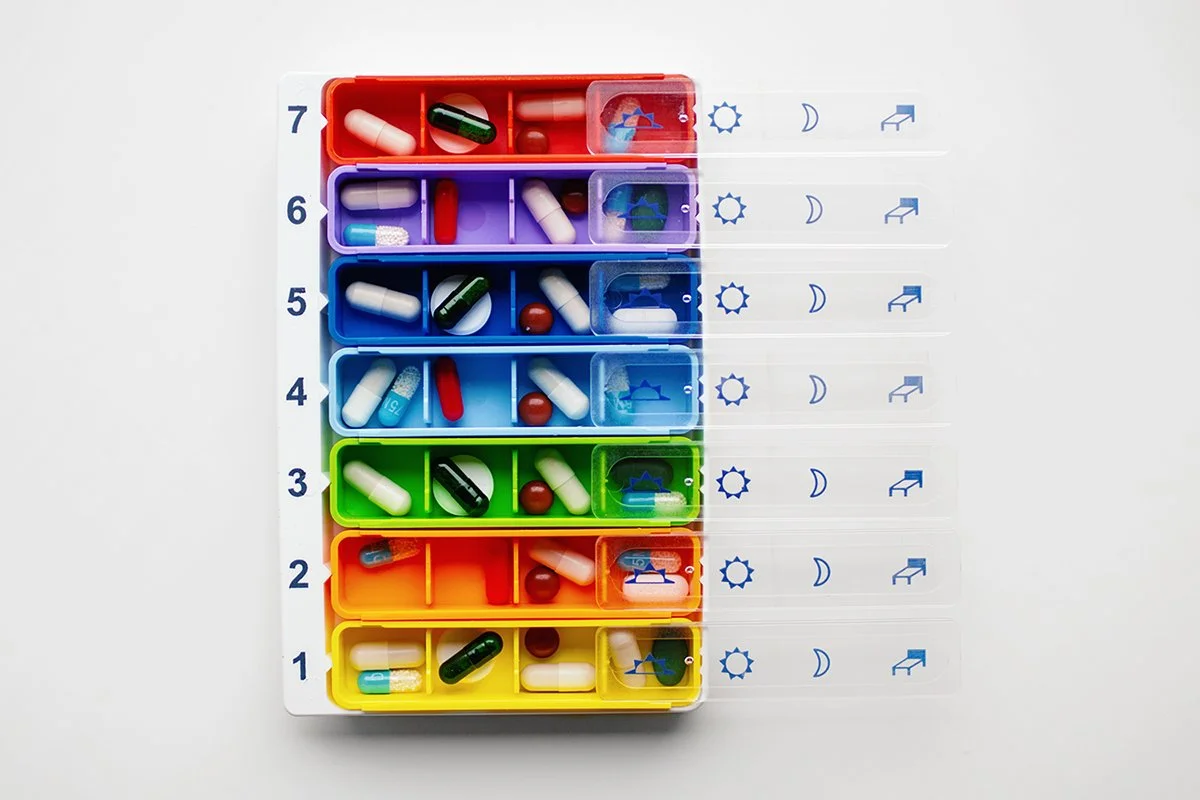Medication Management Tips for Caregivers
If your loved one is suffering from dementia and their care is supervised by a physician, it is likely that they are on several medications. Medication safety tips for elderly family members are perhaps among the daily activities with the greatest potential of both good and harm. Besides taking care to avoid some of the most common medication errors, such as taking medications incorrectly or taking more than is prescribed, many caregivers and seniors rely on other sources of help to stay on track. Pills organizers, medication management devices like pill dispensers, and event reminder services can be useful tools for some. However, nothing substitutes for responsible caregiving advocacy and being proactive about the drugs you and your loved ones are taking.
Strategies for Daily Medication Management
Monitor closely.
Closely monitor medication compliance in the cognitively impaired. If your loved one shows signs of confusion about their medications, or has been diagnosed with cognitive impairment, Alzheimer’s disease, or another form of dementia, do not allow them to manage their own medications without supervision or assistance. If they are simply having trouble tracking their medications, a reminder system may be helpful, but the situation is more serious if your loved one is cognitively impaired.Use a pill box organizer.
Use a pill box or keep a daily list/calendar to help ensure medications are taken as prescribed. Pill boxes now come in many options, such as once or twice a day, or even 4 times per day options. There are also electronic pill dispensers available, typically for a monthly fee, which can be filled with a 30-day supply and alerts you or your loved one when their medication is due.Develop a daily routine.
Ask your provider or pharmacist if medications need to be taken at a certain time of day and if they should be taken with or without food. From there, try to establish which medications can be taken at the same time. Try to group your medications into taking them at the same time every day, once or twice a day or up to four times a day if you need to take medication more often. Create a daily ritual of taking your medications. This may include taking medications first thing in the morning with breakfast or at night before going to bed.Minimize the number of providers and pharmacists you use.
Keeping the number of doctors and pharmacies to a minimum is better for you and better for the providers who must coordinate care. It is advised to use only one pharmacy to obtain medications; this adds another level of review to help ensure appropriate dosage and reduce the risk of adverse drug effects and interactions.Use simple language and clear instructions.
For example, say “Here’s the pill for your high blood pressure. Put it in your month and drink some water.”If your loved one refuses to take the medication, stop and try again later.
Sometimes if your loved one is resistant or refusing to take their medications, it may be best to stop escalating the situation and instead try again later during the day. You may want to talk to your loved one’s provider to develop a modified medication plan if this issue happens all the time.If swallowing is a problem, ask if the medication is available in another form.
In some cases, a liquid version may be available, or the medication may be able to be crushed or opened and mixed with food. However, no pill or tablet should be crushed without first consulting your provider or pharmacist. Crushing some medications may cause them to be ineffective or unsafe.Review medications for safety issues.
Be sure to place medication in a locked drawer or cabinet to avoid accidental overdose. Throw out medications that are no longer being used or that have expired.Have emergency numbers easily accessible.
Keep the number of your local poison control center or emergency room handy. If you suspect a medication overdose, call poison control or 911 before taking any action.

